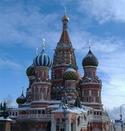The Federation of Canadian Municipalities (FCN) and the Canadian Urban Transit Association (CUTA) have expressed serious concern about generally longer commute trip times making Canadian metropolitan areas less competitive. Each has called for additional funding for transit at the federal level to help reduce commute times and improve metropolitan competitiveness. read more »
Transportation
Toward More Competitive Canadian Metropolitan Areas
- Login to post comments
The Export Business in California (People and Jobs)
California Senate President Pro-Tem Darrell Steinberg countered my Wall Street Journal commentary California Declares War on Suburbia in a letter to the editor (A Bold Plan for Sustainable California Communities) that could be interpreted as suggesting that all is well in the Golden State. read more »
California Declares War on Suburbia II: The Cost of Radical Densification
My April 9 Cross Country column commentary in The Wall Street Journal (California Declares War on Suburbia) outlined California's determination to virtually outlaw new detached housing. The goal is clear: force most new residents into multi-family buildings at 20 and 30 or more to the acre. read more »
The Sorry State of American Transport
We constantly read about the infrastructure crisis in America. I’ll have more to say on this at a future date, but it is pretty clear that we need to spend more money in a whole lot of areas: airports, roads and bridges, public transportation, and more.
Yet it’s very easy to see that so much of what ails transport has nothing to do with a lack of funds and everything to do with a lack of will. I took a train ride on the Northeast corridor last week that really drove it home to me. read more »
Honolulu’s Money Train
Honolulu is set to construct an ambitious urban rail project. It’s a $5.125 billion behemoth that this metropolitan area with less than a million residents may not be able to afford.
Honolulu's Beleaguered Residents
Critically, there is plenty of competition for the scarce dollars that Honolulu residents have to spare. The city’s basic infrastructure is in bad shape. read more »
Commuting in New York City, 2000-2010
New York City is infamous for congestion and long commutes. At 34.6 minutes, it has the longest average commute time in the United State. The region is also America's top user of public transportation, with 30.7% of all metro area commutes made by transit. Nearly 40% of all transit commuters in the United States are in the metro New York. As transit commutes generally take longer than driving, one might be tempted to link these facts. But commute times also seem to correlate with city size, and bedevil big cities with limited public transit too. read more »
The Evolving Urban Form: Moscow's Auto-Oriented Expansion
Moscow is bursting at the seams. The core city covers more than 420 square miles (1,090 kilometers), and has a population of approximately 11.5 million people. With 27,300 residents per square mile (10,500 per square kilometer), Moscow is one percent more dense than the city of New York, though Moscow covers 30 percent more land. The 23 ward area of Tokyo (see Note) is at least a third more dense, though Moscow's land area is at least half again as large as Tokyo. read more »
How Lower Income Citizens Commute
One of the most frequently recurring justifications for densification policies (smart growth, growth management, livability, etc.) lies with the assumption that the automobile-based mobility system (Note 1) disadvantages lower income citizens. Much of the solution, according to advocates of densification is to discourage driving and orient both urbanization and the urban transportation system toward transit as well as walking and cycling. read more »
The Evolving Urban Form: Guangzhou-Foshan
The Pearl River Delta of China is home to the largest extent of continuous urbanization in the world. The Pearl River Delta has 55 million people in the jurisdictions of Hong Kong, Shenzhen, Dongguan, Guangzhou, Foshan, Zhongshan, Jiangmen, Zhuhai and Macau. Moreover, the urban population is confined to barely 10 percent of the land area. These urban areas are the largest export engine of China and reflect the successful legacy of Deng Xiaoping's reforms which had their start with the special economic zone in Shenzhen and spread to the rest of the Delta and then much of the nation.
Adjacent Metropolitan Areas: However, the Pearl River Delta today is not a metropolitan area, as is often asserted. Instead it is rather a collection of adjacent metropolitan areas or labor markets (Figure 1). Metropolitan areas are not created by a large number of people living close to one another. Metropolitan areas are labor markets, crudely delineating the geography of the jobs-housing balance. read more »
Fresh Winds Blowing on California High Speed Rail
For California’s beleaguered high-speed rail project, last week brought plenty of surprises and challenges. Dominating the headlines were the resignations of several top officials of the High-Speed Rail Authority (CHSRA). Among them were board chairman Tom Umberg, CEO Roelof van Ark, board member Matthew Toledo, Deputy Director (Environment) Dan Leavitt and press secretary Rachel Wall. Dan Richard, a respected and trusted advisor of Gov. read more »
- Login to post comments




















